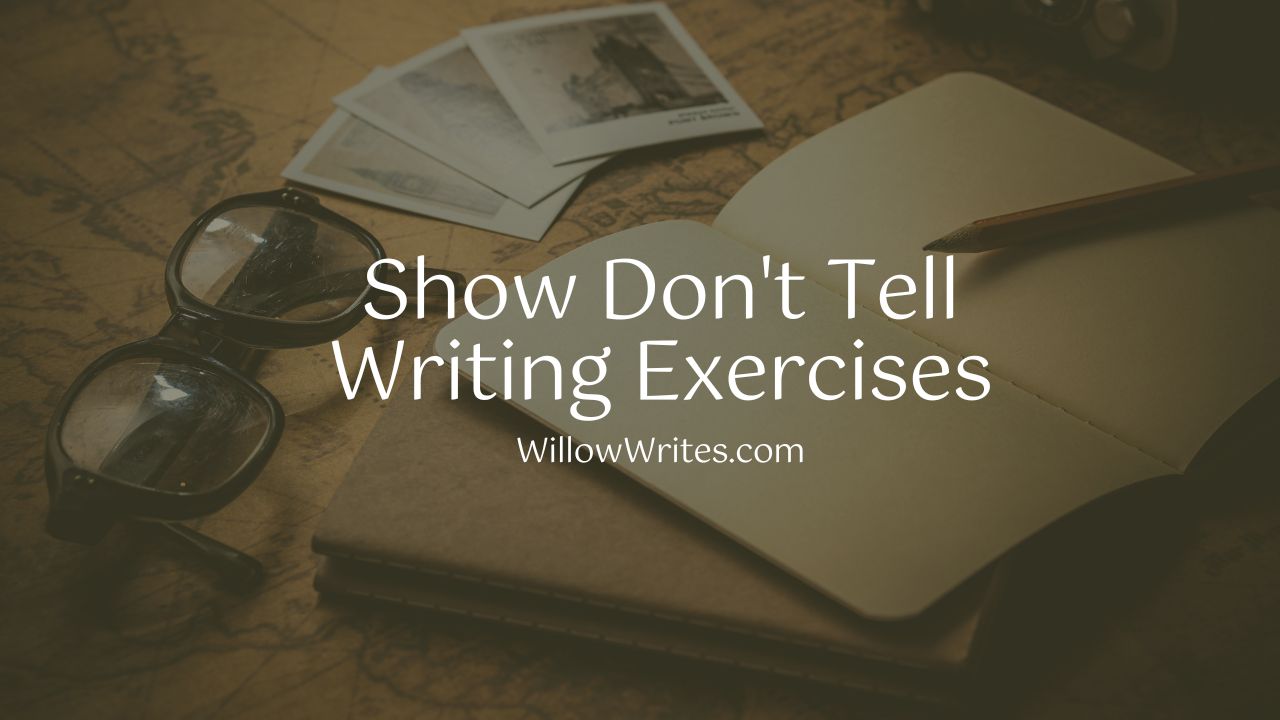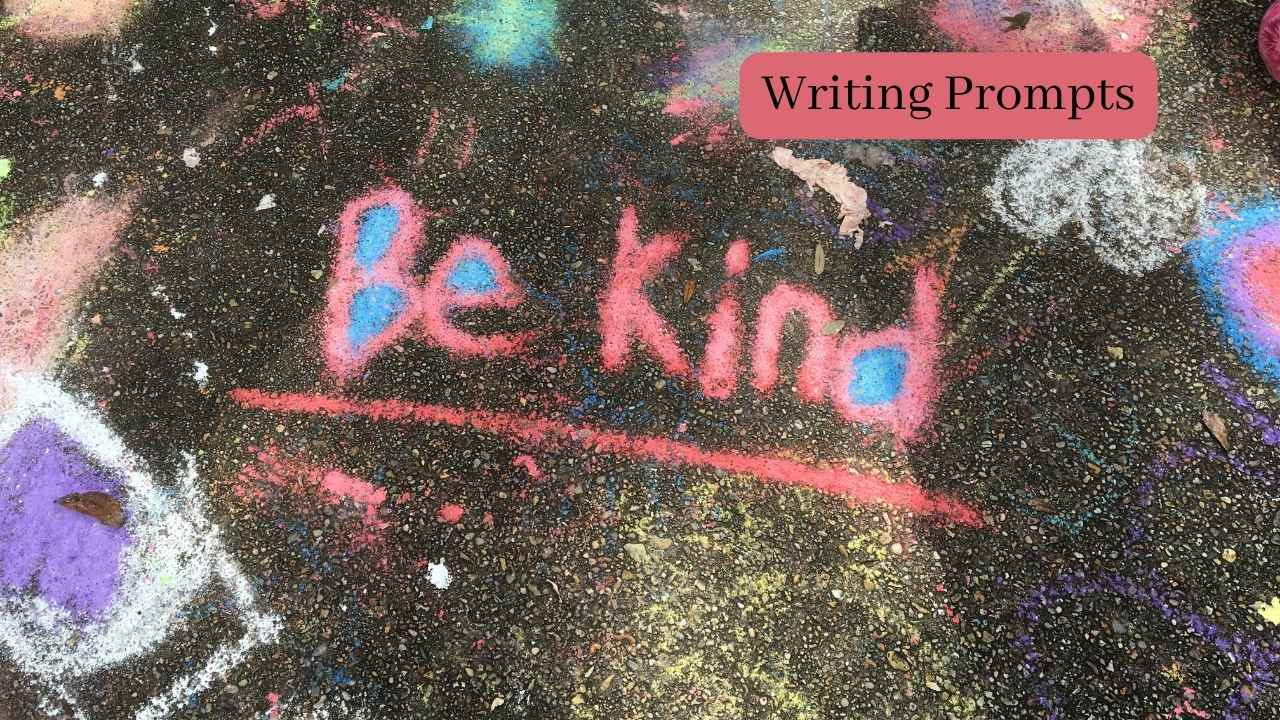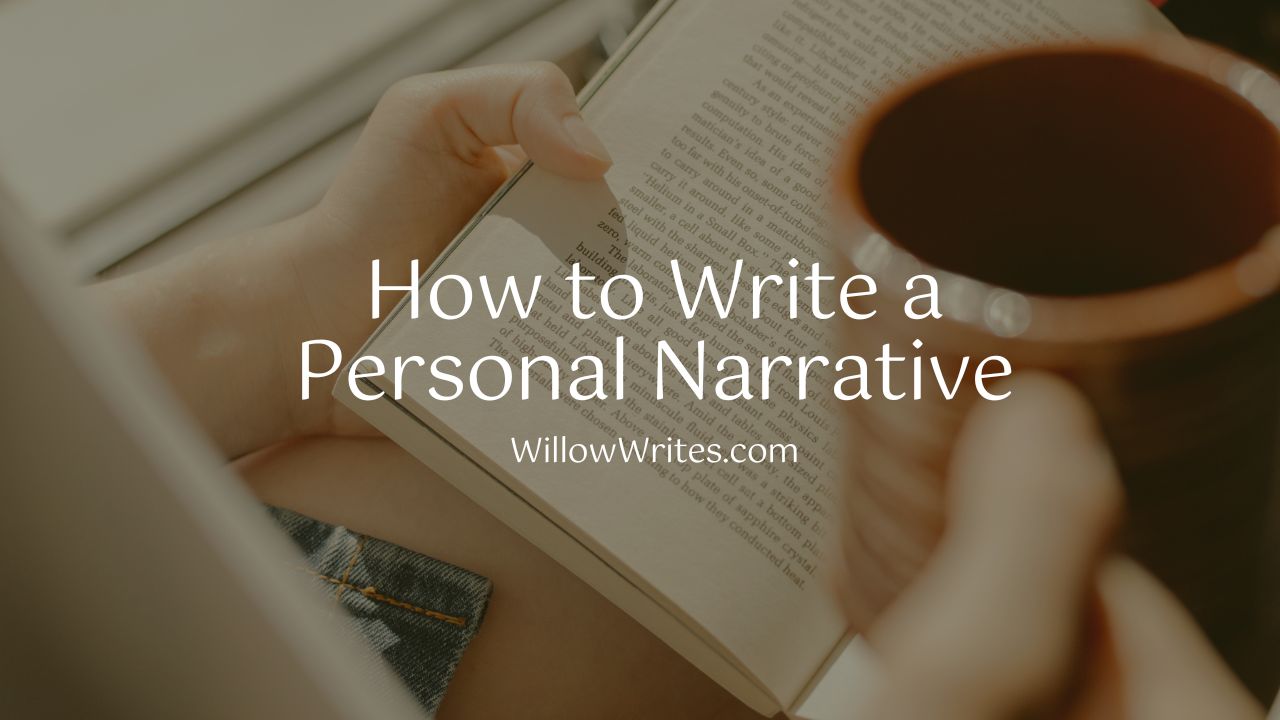Are you ready to ignite your creativity and take your writing to the next level? Look no further than The Writing Journal Playbook! Packed with 75 thought-provoking prompts, this toolkit is guaranteed to keep your pen moving and your imagination soaring.
From exploring your deepest emotions to conjuring up fantastical worlds, these writing journal prompts will challenge you to think outside the box and approach your writing in new and exciting ways. So don’t wait any longer – grab your journal and get ready to unleash your inner writer with The Writing Journal Playbook!
Daring to Dream
Prompts that encourage writers to dream big and set ambitious goals for their lives.
- “The Future is Now”: Imagine it’s 10 years from now, and write about all the amazing things you have accomplished in your career and personal life.
- “Dream Job”: Write about your dream job and all the steps you need to take to make it a reality.
- “Life Goals”: Make a list of your top life goals and what you need to do to achieve them.
- “Bucket List”: Create a bucket list of all the things you want to do in your lifetime, big and small.
- “The Sky’s the Limit”: Write about a time when you took a risk and it paid off, and how it has inspired you to dream bigger.
- “Dream Vacation”: Imagine your dream vacation and write about all the amazing experiences you would have.
- “Future Home”: Describe your dream home and all the features you would love to have.
- “The Power of Positive Thinking”: Write about the power of positive thinking and how it can help you achieve your dreams.
- “The Pursuit of Happiness”: Write about what happiness means to you and what you need to do to achieve it.
- “Vision Board”: Create a vision board with images and words that represent your goals and aspirations.
- “Success Mindset”: Write about the mindset you need to adopt to achieve success in your career and personal life.
- “Personal Growth”: Reflect on areas of your life where you want to grow and what you need to do to get there.
- “Life Purpose”: Write about your life purpose and how it guides your goals and aspirations.
- “The Power of Persistence”: Write about a time when you didn’t give up, even when things got tough, and how it helped you achieve your goals.
- “Overcoming Fear”: Write about a fear you have and how you plan to overcome it in order to achieve your goals.
- “The Power of Passion”: Write about your passions and how they drive you to pursue your dreams.
- “The Journey to Success”: Write about the journey to success and all the challenges and triumphs you have experienced along the way.
- “The Importance of Setting Goals”: Reflect on the importance of setting goals and how it helps you stay focused and motivated.
- “The Power of Positive Affirmations”: Write a list of positive affirmations to help you stay focused and motivated on your goals.
- “The Power of a Growth Mindset”: Write about the power of a growth mindset and how it helps you overcome challenges and achieve your goals
Discovering Your True Self
Prompts that encourage self-reflection and exploration of personal values, beliefs, and passions.
- “Inner Critic”: Write about a specific negative thought or belief that holds you back, and how you can challenge and overcome it.
- “Positive Thinking”: Write about a specific situation where you used positive thinking to reframe a negative thought or emotion.
- “Affirmations”: Write a specific positive affirmation that you find helpful in challenging and overcoming negative thoughts.
- “Gratitude”: Write about a specific thing you are grateful for and how it helps shift your focus from negative thoughts.
- “Self-Compassion”: Write about a specific situation where you practiced self-compassion and how it helped you be kinder to yourself.
- “Mindfulness”: Practice mindfulness in a specific situation and write about the negative thoughts that arose, and how you dealt with them without judgment.
- “Cognitive Behavioral Therapy (CBT)”: Write about a specific time when you used CBT techniques, such as reframing or challenging negative thoughts, and how it helped you overcome negative thinking patterns.
- “Forgiveness”: Write about a specific situation where forgiveness helped you let go of negative thoughts and emotions.
- “The Benefits of Gratitude”: Write about a specific situation where expressing gratitude helped shift your focus from negative thoughts.
- “The Importance of Positive Thinking”: Write about a specific time when positive thinking helped you overcome negative thoughts and emotions.
- “Self-Care”: Write about a specific self-care activity that helps you feel more positive and empowered.
- “Mindfulness”: Write about a specific experience of mindfulness and how it helped you become more aware of your negative thoughts and emotions.
- “Acceptance”: Write about a specific situation where acceptance helped you let go of negative thoughts and emotions.
- “Positive Affirmations”: Write about a specific positive affirmation that you find helpful in challenging and overcoming negative thoughts.
- “Letting Go of Negative Emotions”: Write about a specific negative emotion and how you let go of it.
- “Embracing Your Flaws”: Write about a specific flaw you have and how you have learned to embrace it.
- “Overcoming Comparison”: Write about a specific time when you felt the temptation to compare yourself to others, and how you overcame it.
- “Self-Worth”: Write about a specific moment when you struggled with self-worth and how you found self-acceptance.
- “The Power of Kindness”: Write about a specific act of kindness you have experienced or witnessed and how it affected you.
- “The Importance of Self-Love”: Write about a specific moment when you practiced self-love and how it impacted your well-being.
Life’s Lessons Journal Prompts
Prompts that encourage writers to reflect on their experiences and the lessons they have learned.
- “Life’s Lessons”: Write about a specific experience and the lesson you learned from it.
- “Reflecting on the Past”: Write about a specific event from your past and how it has impacted your present.
- “Learning from Mistakes”: Write about a specific mistake you made and the lesson you learned from it.
- “Growth and Change”: Write about a specific time when you experienced growth or change and how it has affected your life.
- “The Power of Failure”: Write about a specific failure and how it has helped you grow or learn.
- “Overcoming Adversity”: Write about a specific adversity you have faced and how you overcame it.
- “The Journey to Success”: Write about your journey to success and all the challenges and triumphs you have experienced along the way.
- “Personal Growth”: Reflect on a specific area of your life where you have experienced personal growth and how it has impacted you.
- “The Power of Persistence”: Write about a specific time when you didn’t give up, even when things got tough, and how it helped you achieve your goals.
- “Learning from Others”: Write about a person who has taught you a valuable lesson.
- “The Importance of Reflection”: Write about the importance of reflecting on your experiences and how it helps you grow and learn.
- “Life’s Challenges”: Write about a specific challenge you have faced and how it has impacted your life.
- “Overcoming Fears”: Write about a specific fear you have overcome and how it has affected your life.
- “The Power of Resilience”: Write about a specific time when you were resilient and how it helped you overcome a challenge.
- “The Importance of Adaptability”: Write about a specific time when you had to adapt to a new situation and how it impacted your life.
- “The Power of Perspective”: Reflect on a specific situation from a different perspective and how it has affected your life.
- “Lessons from Nature”: Write about a specific experience in nature and the lesson you learned from it.
- “The Power of Forgiveness”: Write about a specific situation where forgiveness played a role and the lesson you learned from it.
- “Learning from Emotions”: Write about a specific emotion you have experienced and the lesson you learned from it.
- “The Journey Within”: Write about a specific experience that helped you learn more about yourself and your inner world.
The Power of Perspective Prompts
Prompts that challenge writers to consider different viewpoints and perspectives.
- “Empathy”: Write about a specific situation where you practiced empathy and how it helped you understand someone else’s perspective.
- “Walking in Someone Else’s Shoes”: Write about a specific experience where you tried to see things from someone else’s perspective.
- “The Power of Perspective”: Write about a specific experience where you gained a new perspective on something.
- “Different Points of View”: Write about a specific situation where you had to consider multiple points of view.
- “The Importance of Understanding”: Write about the importance of understanding others and their perspectives.
- “The Power of Diversity”: Write about the benefits of diversity and how it helps us see things from different perspectives.
- “The Benefits of Curiosity”: Write about the benefits of being curious and open to different perspectives.
- “The Power of Open-Mindedness”: Write about the importance of being open-minded and how it helps us see things in new ways.
- “The Power of Empathy”: Write about the importance of empathy and how it helps us understand and connect with others.
- “The Value of Different Experiences”: Write about the value of different life experiences and how they shape our perspectives.
- “The Benefits of Travel”: Write about the benefits of travel and how it helps us see things from different perspectives.
- “The Power of Communication”: Write about the importance of effective communication and how it helps us understand others’ perspectives.
- “The Importance of Listening”: Write about the importance of listening and how it helps us understand others’ perspectives.
- “The Power of Emotional Intelligence”: Write about the benefits of emotional intelligence and how it helps us understand others’ emotions and perspectives.
- “The Value of Diversity”: Write about the value of diversity and how it helps us see things from different angles.
- “The Importance of Tolerance”: Write about the importance of tolerance and how it helps us understand and respect others’ perspectives.
- “The Power of Inclusion”: Write about the benefits of inclusion and how it helps us see things from different perspectives.
- “The Benefits of Collaboration”: Write about the benefits of collaboration and how it helps us see things from different angles.
- “The Importance of Respecting Differences”: Write about the importance of respecting differences and how it helps us understand and appreciate others’ perspectives.
- “The Power of Embracing Other Cultures”: Write about the benefits of embracing other cultures and how it helps us see things from different viewpoints.
Creative Writing Prompts
Prompts that encourage writers to tap into their creativity and practice their writing skills.
- “Writing Challenges”: Choose a specific writing challenge, such as writing in a different genre or using a specific writing technique, and write about the experience.
- “Creative Writing”: Write a short story, poem, or piece of creative nonfiction using a specific theme or prompt.
- “Writing Exercises”: Try a specific writing exercise, such as freewriting or using prompts, and write about the experience.
- “Writing Prompts”: Choose a specific writing prompt and write about it.
- “The Writing Process”: Reflect on your writing process and how you can improve it.
- “Writing Goals”: Write about your writing goals and how you plan to achieve them.
- “Writing Habits”: Write about your writing habits and how you can improve them.
- “The Importance of Practice”: Write about the importance of practice in writing and how it helps you improve.
- “Writing Challenges”: Write about a specific writing challenge you have faced and how you overcame it.
- “Creative Writing Prompts”: Choose a specific creative writing prompt and write about it.
- “Writing Techniques”: Experiment with a specific writing technique, such as using sensory details or varied sentence structure, and write about the experience.
- “Writing Inspiration”: Write about a specific source of writing inspiration and how it has influenced your work.
- “Writing Challenges”: Write about a specific writing challenge you have faced and how you plan to overcome it.
- “The Writing Life”: Reflect on the ups and downs of being a writer and how you cope with them.
- “The Writing Journey”: Write about your writing journey and the challenges and triumphs you have experienced along the way.
- “The Writing Process”: Reflect on your writing process and how you can make it more efficient and effective.
- “Creative Writing Exercises”: Try a specific creative writing exercise, such as writing a character sketch or creating a setting, and write about the experience.
- “Writing Techniques”: Experiment with a specific writing technique, such as using dialogue or using active verbs, and write about the experience.
- “Writing Habits”: Write about your writing habits and how you can develop healthier ones.
- “The Writing Life”: Write about the challenges and rewards of being a writer.
Fictional Worlds
Prompts that inspire writers to imagine and create their own fictional worlds, characters, and stories.
- “World-Building”: Write about the process of creating your own fictional world and the details you consider.
- “Creating Characters”: Write about the process of creating a specific character and the details you consider.
- “Character Development”: Write about the process of developing a specific character and the changes they go through.
- “Story Ideas”: Write about a specific story idea you have and how you plan to develop it.
- “Plotting a Story”: Write about the process of plotting a specific story and the challenges and choices you face.
- “The Writing Process”: Reflect on your writing process and how you approach creating fictional worlds, characters, and stories.
- “The Inspiration Behind Your Stories”: Write about the specific inspirations behind your stories and how you incorporate them.
- “Creating a Fictional World”: Write about the process of creating a specific fictional world and the details you consider.
- “Character Arcs”: Write about the process of developing a character arc for a specific character.
- “Story Themes”: Write about the themes you explore in your stories and how you incorporate them.
- “Building a Fictional Universe”: Write about the process of building a fictional universe and the details you consider.
- “Creating Believable Characters”: Write about the techniques you use to create believable characters.
- “The Writing Life”: Reflect on the challenges and rewards of being a writer of fiction.
- “Developing a Story”: Write about the process of developing a specific story and the challenges and choices you face.
- “The Art of World-Building”: Write about the art of creating fictional worlds and the details you consider.
- “Creating Memorable Characters”: Write about the techniques you use to create memorable characters.
- “Story Structures”: Write about the different story structures you have used in your writing and how you decide which one to use.
- “The Writing Process”: Reflect on your writing process and how you approach creating fictional worlds, characters, and stories.
- “The Inspiration Behind Your Characters”: Write about the specific inspirations behind your characters and how you incorporate them into your stories.
- “The Writing Life”: Write about the challenges and rewards of being a writer of fiction.
The Art of Poetry
Prompts that challenge writers to express their thoughts and feelings through poetry.
- “Write a Poem About Love”: Write a poem about love, whether romantic or platonic.
- “Write a Poem About Nature”: Write a poem about nature, using sensory details to bring it to life.
- “Write a Poem About Your Emotions”: Write a poem about a specific emotion you have experienced, using imagery and figurative language to convey it.
- “Write a Poem About Your Childhood”: Write a poem about your childhood, using memories and specific details to bring it to life.
- “Write a Poem About Your Future”: Write a poem about your future, using imagery and figurative language to convey your dreams and goals.
- “Write a Poem About a Person Who Inspires You”: Write a poem about a specific person who inspires you, using imagery and figurative language to convey their impact on your life.
- “Write a Poem About Your Home”: Write a poem about your home, using imagery and specific details to bring it to life.
- “Write a Poem About Your Passions”: Write a poem about your passions and how they inspire you.
- “Write a Poem About a Place That Holds Meaning to You”: Write a poem about a specific place that holds meaning to you, using imagery and specific details to bring it to life.
- “Write a Poem About a Specific Memory”: Write a poem about a specific memory, using imagery and specific details to bring it to life.
- “Write a Poem About Your Goals”: Write a poem about your goals and how you plan to achieve them.
- “Write a Poem About Your Fears”: Write a poem about a specific fear you have and how you cope with it.
- “Write a Poem About a Person You Admire”: Write a poem about a specific person you admire and what makes them special to you.
- “Write a Poem About a Place You Love”: Write a poem about a specific place you love and what makes it special to you.
- “Write a Poem About Your Hopes and Dreams”: Write a poem about your hopes and dreams and how you plan to achieve them.
- “Write a Poem About Your Values”: Write a poem about your values and how they shape your life.
- “Write a Poem About Your Personal Journey”: Write a poem about your personal journey and the challenges and triumphs you have experienced along the way.
- “Write a Poem About a Time When You Felt Strong”: Write a poem about a specific time when you felt strong and how it affected your life.
- “Write a Poem About Your Identity”: Write a poem about your identity and what makes you unique.
- “Write a Poem About Your Beliefs”: Write a poem about your beliefs and how they shape your life.
Storytelling Journal Prompts
Prompts that inspire writers to craft engaging and compelling stories.
- “Write a Story About Your Childhood”: Write a story about your childhood and the memories that stand out to you.
- “Write a Story About Your First Love”: Write a story about your first love and the feelings it brought.
- “Write a Story About Your First Heartbreak”: Write a story about your first heartbreak and how you coped with it.
- “Write a Story About Your First Job”: Write a story about your first job and the experiences you had.
- “Write a Story About Your First Adventure”: Write a story about your first adventure and the memories you made.
- “Write a Story About Your First Home”: Write a story about your first home and the feelings it brings up for you.
- “Write a Story About Your Family”: Write a story about your family and the traditions and memories you have with them.
- “Write a Story About Your Education”: Write a story about your education and the lessons you learned along the way.
- “Write a Story About Your Career”: Write a story about your career and the experiences you have had so far.
- “Write a Story About Your Hobbies”: Write a story about your hobbies and the joy they bring you.
- “Write a Story About Your Travel Experiences”: Write a story about your travel experiences and the memories you have made.
- “Write a Story About Your Relationships”: Write a story about your relationships and the impact they have had on your life.
- “Write a Story About Your Personal Growth”: Write a story about your personal growth and the challenges and triumphs you have experienced along the way.
- “Write a Story About Your Passions”: Write a story about your passions and the role they play in your life.
- “Write a Story About Your Accomplishments”: Write a story about your accomplishments and the pride you feel for them.
- “Write a Story About Your Aspirations”: Write a story about your aspirations and the steps you are taking to achieve them.
- “Write a Story About Your Struggles”: Write a story about your struggles and the lessons you learned from them.
- “Write a Story About Your Joys”: Write a story about your joys and the moments that bring you the most happiness.
- “Write a Story About Your Fears”: Write a story about your fears and how you cope with them.
- “Write a Story About Your Hopes”: Write a story about your hopes and the steps you are taking to make them a reality.
The Power of Words
Prompts that encourage writers to explore the impact of language and the power of words.
- “Reflect on the Power of Words”: Reflect on the power of words, considering how they can inspire, persuade, or hurt.
- “Write About the Role of Language in Your Life”: Write about the role of language in your life, exploring how it shapes your thoughts, feelings, and interactions.
- “Experiment with Using Different Words to Convey the Same Idea”: Experiment with using different words to convey the same idea, considering how different word choices can impact meaning.
- “Write About a Time When Words Failed You”: Write about a time when words failed you, reflecting on how you struggled to communicate and the emotions that arose.
- “Write About a Time When Words Were Used to Hurt You”: Write about a time when words were used to hurt you, exploring how you were affected and how you coped with the pain.
- “Explore the Role of Body Language in Communication”: Explore the role of body language in communication, considering how it can enhance or contradict verbal messages.
- “Write About a Miscommunication You Experienced”: Write about a miscommunication you experienced, reflecting on how language barriers or misunderstandings led to confusion.
- “Write About a Time When You Were Persuasive with Your Words”: Write about a time when you were persuasive with your words, considering what techniques you used and how you were able to influence others.
- “Write About a Time When You Struggled to Find the Right Words”: Write about a time when you struggled to find the right words, exploring the emotions and challenges that arose.
- “Write About a Time When You Were Inspired by Someone Else’s Words”: Write about a time when you were inspired by someone else’s words, considering what message resonated with you and how it impacted you.
- “Write About a Time When You Used Words to Comfort Someone Else”: Write about a time when you used words to comfort someone else, exploring how you found the right words and the impact they had.
- “Write About a Time When You Used Words to Stand Up for Yourself”: Write about a time when you used words to stand up for yourself, considering how you found the courage to speak your truth and the outcome.
- “Write About a Time When You Used Words to Help Someone Else”: Write about a time when you used words to help someone else, exploring the impact of your words and the role of empathy.
- “Write About a Time When You Used Humor to Diffuse a Tense Situation”: Write about a time when you used humor to diffuse a tense situation, considering how you found the right words and the effect they had.
- “Write About a Time When You Used Words to Express Your Emotions”: Write about a time when you used words to express your emotions, exploring how you found the courage to be vulnerable and the response you received.
- “Write About a Time When You Used Words to Apologize”: Write about a time when you used words to apologize, considering the impact of your words and the role of remorse.
- “Write About a Time When You Used Words to Forgive Someone Else”: Write about a time when you used words to forgive someone else, exploring the process of letting go and the impact on your relationship.
- “Write About a Time When You Used Words to Seek Understanding”: Write about a time when you used words to seek understanding, considering the role of questioning and the impact of listening.
- “Write About a Time When You Used Words to Create Change”: Write about a time when you used words to create change, considering the power of advocacy and the role of your voice.
- Write About a Time When You Used Words to Seek Understanding”: Write about a time when you used words to seek understanding, considering the role of questioning and the impact of listening. Whether you were trying to clarify a misunderstanding or learn more about someone else’s perspective, reflect on the importance of open communication and the power of empathy.
Journaling for Growth
Prompts that focus on personal development and goal-setting.
- “Write About Your Personal Values”: Write about your personal values, considering what is most important to you and how they guide your choices and actions.
- “Write About Your Goals for the Future”: Write about your goals for the future, considering what you want to achieve and how you plan to get there.
- “Write About Your Short-Term and Long-Term Goals”: Write about your short-term and long-term goals, considering how they align with your values and how you can work towards them.
- “Write About Your Personal Strengths and Weaknesses”: Write about your personal strengths and weaknesses, exploring how you can build on your strengths and address your weaknesses.
- “Write About Your Personal Growth Journey”: Write about your personal growth journey, considering the challenges you have faced and the lessons you have learned.
- “Write About a Time When You Faced a Challenge and Overcame It”: Write about a time when you faced a challenge and overcame it, reflecting on what you learned and how you grew from the experience.
- “Write About Your Personal Mission Statement”: Write about your personal mission statement, considering your values, goals, and purpose in life.
- “Write About Your Personal Brand”: Write about your personal brand, considering how you want to be perceived by others and how you can present yourself authentically.
- “Write About Your Personal Vision Board”: Write about your personal vision board, considering the goals and aspirations you have visualized and how they inspire you.
- “Write About Your Personal Development Plan”: Write about your personal development plan, considering the steps you are taking to grow and achieve your goals.
- “Write About Your Personal Mantra”: Write about your personal mantra, considering the words or phrases that inspire and motivate you.
- “Write About Your Personal Core Desired Feelings”: Write about your personal core desired feelings, considering the emotions you want to experience on a daily basis.
- “Write About Your Personal Growth Mindset”: Write about your personal growth mindset, considering the ways in which you embrace learning and challenge as opportunities for growth.
- “Write About Your Personal Action Plan”: Write about your personal action plan, considering the specific steps you are taking to achieve your goals.
- “Write About Your Personal Success Habits”: Write about your personal success habits, considering the routines and practices that contribute to your growth and achievement.
- “Write About Your Personal Role Models”: Write about your personal role models, considering the people who inspire you and the qualities you admire in them.
- “Write About Your Personal Affirmations”: Write about your personal affirmations, considering the positive statements you use to boost your confidence and motivation.
- “Write About Your Personal Vision of Success”: Write about your personal vision of success, considering what success means to you and how you define it.
- “Write About Your Personal Growth Goals”: Write about your personal growth goals, considering the areas of your life you want to improve and how you plan to do so.
- “Write About Your Personal Development Challenges”: Write about your personal development challenges, considering the obstacles you face and how you plan to overcome them.
Mindfulness
Prompts that encourage writers to be present in the moment and practice mindfulness.
- “Write About a Time When You Were Fully Present”: Write about a time when you were fully present, considering the sights, sounds, and sensations you experienced and how you were able to fully immerse yourself in the moment.
- “Write About Your Practice of Mindfulness”: Write about your practice of mindfulness, considering how you incorporate mindfulness into your daily routine and the benefits you have experienced.
- “Write About a Time When You Were Able to Let Go of Your Thoughts and Emotions”: Write about a time when you were able to let go of your thoughts and emotions, considering how you were able to be present and how it impacted your experience.
- “Write About Your Personal Definition of Mindfulness”: Write about your personal definition of mindfulness, considering what it means to you and how you strive to live mindfully.
- “Write About a Time When You Were Able to Find Gratitude in the Present Moment”: Write about a time when you were able to find gratitude in the present moment, considering what you were grateful for and how it impacted your perspective.
- “Write About Your Personal Mindfulness Triggers”: Write about your personal mindfulness triggers, considering the cues that remind you to be present and the techniques you use to bring yourself back to the present.
- “Write About a Time When You Were Able to Practice Self-Compassion in the Present Moment”: Write about a time when you were able to practice self-compassion in the present moment, considering how you were able to let go of judgment and embrace kindness towards yourself.
- “Write About a Time When You Were Able to Find Peace in the Present Moment”: Write about a time when you were able to find peace in the present moment, considering what helped you find calm and how it impacted your experience.
- “Write About Your Personal Mindfulness Goals”: Write about your personal mindfulness goals, considering the ways in which you want to improve your practice and the steps you are taking to do so.
- “Write About a Time When You Were Able to Overcome Distractions and Stay Focused”: Write about a time when you overcame distractions and stayed focused, considering how you were able to stay present and the benefits you had experienced.
- “Write About Your Personal Mindfulness Techniques”: Write about your personal mindfulness techniques, considering the methods you use to bring yourself back to the present moment and their impact.
- “Write About a Time When You Were Able to Let Go of Stress and Relax”: Write about a time when you were able to let go of stress and relax, considering how you were able to be present and how it impacted your experience.
- “Write About Your Personal Mindfulness Practice”: Write about your personal mindfulness practice, considering the ways in which you incorporate mindfulness into your daily routine and the benefits you have experienced.
- “Write About a Time When You Were Able to Find Joy in the Present Moment”: Write about a time when you were able to find joy in the present moment, considering what brought you joy and how it impacted your experience.
- “Write About Your Personal Mindfulness Challenges”: Write about your personal mindfulness challenges, considering the obstacles you face and how you plan to overcome them.
- “Write About a Time When You Were Able to Accept What Is and Let Go of What Could Have Been”: Write about a time when you were able to accept what is and let go of what could have been, considering how you were able to be present and how it impacted your experience.
- “Write About a Time When You Were Able to Find Gratitude in the Present Moment”: Write about a time when you were able to find gratitude in the present moment, considering what you were grateful for and how it impacted your perspective.
- “Write About Your Personal Mindfulness Triggers”: Write about your personal mindfulness triggers, considering the cues that remind you to be present and the techniques you use to bring yourself back to the present.
- “Write About Your Personal Mindfulness Techniques”: Write about your personal mindfulness techniques, considering the methods you use to bring yourself back to the present moment and their impact.
- “Write About Your Personal Mindfulness Practice”: Write about your personal mindfulness practice, considering the ways in which you incorporate mindfulness into your daily routine and the benefits you have experienced.
Gratitude
Prompts that help writers cultivate a sense of gratitude and appreciation for the positive aspects of their lives.
- “Write About Something You Are Grateful for Today”: Write about something you are grateful for today, considering what brings you joy and how it enhances your life.
- “Write About Your Personal Definition of Gratitude”: Write about your personal definition of gratitude, considering what it means to you and how you strive to cultivate gratitude in your life.
- “Write About a Time When You Were Able to Find Gratitude in a Challenging Situation”: Write about a time when you were able to find gratitude in a challenging situation, considering how you were able to shift your perspective and what you were grateful for.
- “Write About Your Personal Gratitude Practice”: Write about your personal gratitude practice, considering the ways in which you incorporate gratitude into your daily routine and the benefits you have experienced.
- “Write About Something You Are Looking Forward to and Why”: Write about something you are looking forward to and why, considering how it brings you joy and how it enhances your life.
- “Write About Your Personal Gratitude Goals”: Write about your personal gratitude goals, considering the ways in which you want to improve your practice and the steps you are taking to do so.
- “Write About a Time When You Were Able to Express Gratitude to Someone Else”: Write about a time when you were able to express gratitude to someone else, considering how it impacted your relationship and how it enhanced your life.
- “Write About Your Personal Gratitude Challenges”: Write about your personal gratitude challenges, considering the obstacles you face and how you plan to overcome them.
- “Write About Something You Are Proud of and Why”: Write about something you are proud of and why, considering how it reflects your values and how it enhances your life.
- “Write About a Time When You Were Able to Find Gratitude for the Present Moment”: Write about a time when you were able to find gratitude for the present moment, considering what you were grateful for and how it impacted your perspective.
- “Write About Your Personal Gratitude Triggers”: Write about your personal gratitude triggers, considering the cues that remind you to be grateful and the techniques you use to cultivate gratitude.
- “Write About a Time When You Were Able to Find Gratitude for the Simple Things in Life”: Write about a time when you were able to find gratitude for the simple things in life, considering what you were grateful for and how it impacted your perspective.
- “Write About Your Personal Gratitude Techniques”: Write about your personal gratitude techniques, considering the methods you use to cultivate gratitude and the impact they have.
- “Write About Something You Appreciate About Your Life and Why”: Write about something you appreciate about your life and why, considering how it enhances your well-being and happiness.
- “Write About Your Personal Gratitude Affirmations”: Write about your personal gratitude affirmations, considering the positive statements you use to cultivate gratitude and how they impact your perspective.
- “Write About a Time When You Were Able to Find Gratitude for Your Challenges”: Write about a time when you were able to find gratitude for your challenges, considering what you learned and how it helped you grow.
- “Write About Your Personal Gratitude Mantra”: Write about your personal gratitude mantra, considering the words or phrases that inspire and motivate you to be grateful.
- “Write About Something You Take for Granted and Why”: Write about something you take for granted and why considering how it enhances your life and how you can cultivate gratitude for it.
- “Write About a Time When You Were Able to Find Gratitude for Your Blessings”: Write about a time when you were able to find gratitude for your blessings, considering what you were grateful for and how it impacted your perspective.
- “Write About Your Personal Gratitude Journaling Practice”: Write about your personal gratitude journaling practice, considering the ways in which you incorporate gratitude journaling into your daily routine and the benefits you have experienced.
Emotional Intelligence
Prompts that help writers develop their emotional intelligence and emotional awareness.
- “Write About Your Personal Definition of Emotional Intelligence”: Write about your personal definition of emotional intelligence, considering what it means to you and how you strive to develop your emotional intelligence.
- “Write About a Time When You Were Able to Recognize and Manage Your Emotions”: Write about a time when you were able to recognize and manage your emotions, considering how you were able to identify your feelings and how you dealt with them.
- “Write About Your Personal Emotional Intelligence Practice”: Write about your personal emotional intelligence practice, considering the ways in which you incorporate emotional intelligence into your daily routine and the benefits you have experienced.
- “Write About a Time When You Were Able to Empathize with Someone Else”: Write about a time when you were able to empathize with someone else, considering how you were able to understand their feelings and how it impacted your relationship.
- “Write About Your Personal Emotional Intelligence Goals”: Write about your personal emotional intelligence goals, considering the ways in which you want to improve your practice and the steps you are taking to do so.
- “Write About a Time When You Were Able to Communicate Your Emotions Effectively”: Write about a time when you were able to communicate your emotions effectively, considering how you were able to express yourself and how it impacted your relationships.
- “Write About Your Personal Emotional Intelligence Challenges”: Write about your personal emotional intelligence challenges, considering the obstacles you face and how you plan to overcome them.
- “Write About a Time When You Were Able to Regulate Your Emotions”: Write about a time when you were able to regulate your emotions, considering how you were able to manage your feelings and how it impacted your experience.
- “Write About Your Personal Emotional Intelligence Triggers”: Write about your personal emotional intelligence triggers, considering the cues that remind you to be aware of your emotions and the techniques you use to manage them.
- “Write About a Time When You Were Able to Understand Your Emotions”: Write about a time when you were able to understand your emotions, considering how you were able to identify your feelings and how it impacted your experience.
- “Write About Your Personal Emotional Intelligence Techniques”: Write about your personal emotional intelligence techniques, considering the methods you use to develop your emotional intelligence and the impact they have.
- “Write About a Time When You Were Able to Practice Self-Compassion”: Write about a time when you were able to practice self-compassion, considering how you were able to be kind and understanding towards yourself and how it impacted your experience.
- “Write About Your Personal Emotional Intelligence Values”: Write about your personal emotional intelligence values, considering the beliefs that guide your emotional intelligence practice and how they impact your life.
- “Write About a Time When You Were Able to Manage Your Emotions in a Difficult Situation”: Write about a time when you were able to manage your emotions in a difficult situation, considering how you were able to cope and how it impacted your experience.
- “Write About Your Personal Emotional Intelligence Affirmations”: Write about your personal emotional intelligence affirmations, considering the positive statements you use to cultivate emotional intelligence and how they impact your perspective.
- “Write About a Time When You Were Able to Practice Emotional Intelligence in a Group Setting”: Write about a time when you were able to practice emotional intelligence in a group setting, considering how you managed your emotions and the impact it had on the group dynamic.
- “Write About Your Personal Emotional Intelligence Mantra”: Write about your personal emotional intelligence mantra, considering the words or phrases that inspire and motivate you to develop your emotional intelligence.
- “Write About a Time When You Were Able to Practice Emotional Intelligence in a Leadership Role”: Write about a time when you practiced emotional intelligence in a leadership role, considering how you managed your emotions and the impact it had on your team.
“Write About Your Personal Emotional Intelligence Journaling Practice”: Write about your personal emotional intelligence journaling practice, considering the ways in which you incorporate emotional intelligence journaling into your daily routine and the benefits you have experienced.
- “Write About a Time When You Were Able to Communicate Effectively”: Write about a time when you were able to communicate e
Relationship Dynamics
Prompts that explore the complexities of personal relationships, including friendships, romantic relationships, and family relationships.
- “Write About Your Personal Definition of a Healthy Relationship”: Write about your personal definition of a healthy relationship, considering what qualities and characteristics you believe are important.
- “Write About a Time When You Were Able to Communicate Effectively in a Relationship”: Write about a time when you were able to communicate effectively in a relationship, considering how you were able to express yourself and how it impacted the relationship.
- “Write About Your Personal Relationship Practice”: Write about your personal relationship practice, considering the ways in which you cultivate healthy relationships and the benefits you have experienced.
- “Write About a Time When You Were Able to Practice Empathy in a Relationship”: Write about a time when you were able to practice empathy in a relationship, considering how you were able to understand the other person’s perspective and how it impacted the relationship.
- “Write About Your Personal Relationship Goals”: Write about your personal relationship goals, considering the ways in which you want to improve your relationships and the steps you are taking to do so.
- “Write About a Time When You Were Able to Set Boundaries in a Relationship”: Write about a time when you were able to set boundaries in a relationship, considering how you were able to communicate your needs and how it impacted the relationship.
- “Write About Your Personal Relationship Challenges”: Write about your personal relationship challenges, considering the obstacles you face and how you plan to overcome them.
- “Write About a Time When You Were Able to Resolve a Conflict in a Relationship”: Write about a time when you were able to resolve a conflict in a relationship, considering how you were able to find a resolution and how it impacted the relationship.
- “Write About Your Personal Relationship Triggers”: Write about your personal relationship triggers, considering the cues that remind you to be aware of your relationships and the techniques you use to manage them.
- “Write About a Time When You Were Able to Build Trust in a Relationship”: Write about a time when you were able to build trust in a relationship, considering how you were able to foster trust and how it impacted the relationship.
- “Write About Your Personal Relationship Techniques”: Write about your personal relationship techniques, considering the methods you use to cultivate healthy relationships and the impact they have.
- “Write About a Time When You Were Able to Practice Forgiveness in a Relationship”: Write about a time when you were able to practice forgiveness in a relationship, considering how you were able to let go of resentment and how it impacted the relationship.
- “Write About Your Personal Relationship Values”: Write about your personal relationship values, considering the beliefs that guide your relationships and how they impact your life.
- “Write About a Time When You Were Able to Practice Gratitude in a Relationship”: Write about a time when you were able to practice gratitude in a relationship, considering how you were able to appreciate the other person and how it impacted the relationship.
- “Write About Your Personal Relationship Affirmations”: Write about your personal relationship affirmations, considering the positive statements you use to cultivate healthy relationships and how they impact your perspective.
- “Write About a Time When You Were Able to Practice Self-Love in a Relationship”: Write about a time when you were able to practice self-love in a relationship, considering how you were able to prioritize your own needs and how it impacted the relationship.
- “Write About Your Personal Relationship Mantra”: Write about your personal relationship mantra, considering the words or phrases that inspire and motivate you to cultivate healthy relationships.
- “Write About a Time When You Were Able to Practice Relationship Skills in a Group Setting”: Write about a time when you were able to practice relationship skills in a group setting, considering how you managed your relationships and their impact on them the group dynamic.
- “Write About Your Personal Relationship Journaling Practice”: Write about your personal relationship journaling practice, considering the ways in which you incorporate relationship journaling into your daily routine and the benefits you have experienced.
- “Write About a Time When You Were Able to Practice Vulnerability in a Relationship”: Write about a time when you practiced vulnerability in a relationship, considering how you were able to share your true self and how it impacted the relationship.
Positive Thinking
Prompts that help writers cultivate a more positive and hopeful outlook on life.
“Self-Care”: Prompts that encourage writers to prioritize their own well-being and self-care practices.
“Mind and Body”: Prompts that explore the connection between mental and physical health.
“Mindfulness in Nature”: Prompts that encourage writers to connect with nature and practice mindfulness in the great outdoors.
“Travel Diaries”: Prompts that inspire writers to document their travel adventures and experiences.
“Personal Heroes”: Prompts that encourage writers to reflect on the people who inspire and motivate them.
“Overcoming Obstacles”: Prompts that inspire writers to reflect on challenges they have faced and how they have overcome them.
“Life’s Little Joys”: Prompts that encourage writers to appreciate and savor the small pleasures in life.
“Personal Growth Plan”: Prompts that help writers create a roadmap for personal growth and development.
“Creating a Life Vision”: Prompts that encourage writers to define their goals and aspirations for the future.
“Setting Boundaries”: Prompts that help writers establish healthy boundaries and prioritize self-care.
“Communication Skills”: Prompts that encourage writers to reflect on their communication style and how they can improve it.
“Conflict Resolution”: Prompts that help writers develop effective conflict resolu








